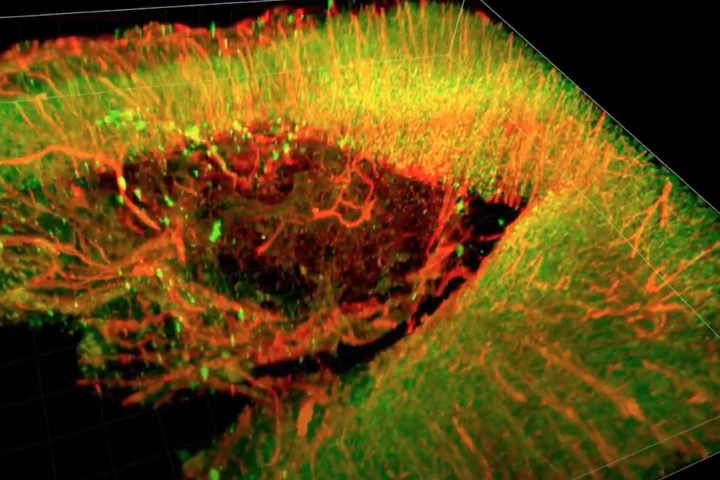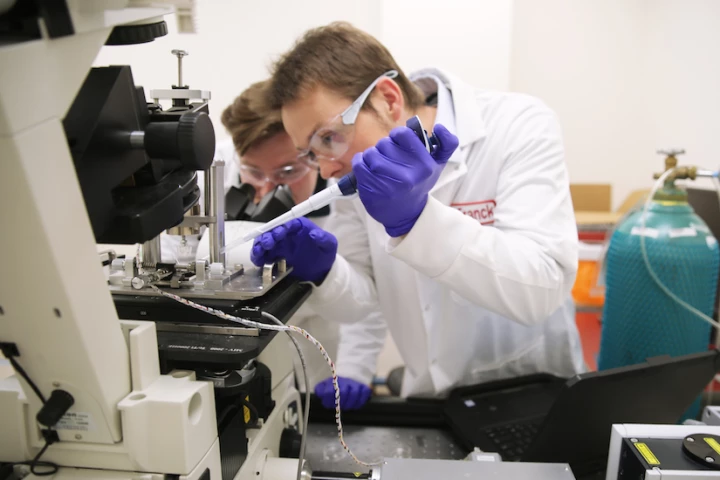Traumatic Brain Injury
-
Although it's important to know if someone has experienced a concussion, the injuries are notoriously difficult to diagnose. According to a new study, however, urine tests may do the trick – plus they could be used to monitor the healing process.
-
A new implantable "brain glue" material could offer a way to intervene in the sequence of events following a traumatic brain injury, by mimicking the supporting structure of brain cells to prevent tissue loss and regenerate neurons.
-
When someone has experienced a stroke or brain injury, it's not uncommon for them to lose their ability to swallow. A new study, however, suggests that a throat-zapping system could help correct the problem faster than traditional treatments.
-
Detecting concussion can be tricky business but scientists are working on techniques that can provide more definitive answers, including a test that is said to reveal tell-tale signs of brain injury through the saliva.
-
A blood test that reveals the severity of brain injuries in hours through a key biomarker was recently approved for clinical use, but researchers are now setting their sights on a point-of-care solution that can deliver results within 15 minutes.
-
Scientists in the UK have developed a new AI algorithm that could help narrow the margin for error in diagnosing brain injuries, with the ability to detect and categorize different types of lesions to gauge the extent of the damage.
-
Engineers at the University of Wisconsin-Madison (UW) have been investigating ways of nursing concussed brain cells back to healthy function, and have found that cooling them can protect them from damage and allow them to operate as normal.
-
Two compelling new studies are building on a hypothesis suggesting age-related dementia is caused by a leaky blood-brain barrier. Experts suggest the studies are interesting but not particularly applicable to human cases of dementia.
-
A landmark study has described a new method to detect signs of consciousness in unresponsive brain-injured patients using a simple EEG scan. The research also suggests the EEG data can predict which patients have a high chance of regaining consciousness and recovering.
-
A study has affirmed the anesthetic xenon can help prevent long-term damage associated with traumatic brain injury (TBI). The research demonstrated in mice that if xenon is administered within a few hours of a TBI it can prevent brain tissue damage that would result in long-term cognitive problems.
-
A couple of years ago, we first heard about a neck band designed to protect athletes from concussions by essentially making their brains bigger. Now, a new study indicates that it does indeed work, protecting wearers against damage caused by smaller hits along with the big ones.
-
When someone has a head injury, it's vitally important to know if they're experiencing elevated intracranial pressure – it can cause damage to the brain and spinal cord if left unchecked. A newly-developed device could make the diagnosis process faster and easier than ever before.
Load More











